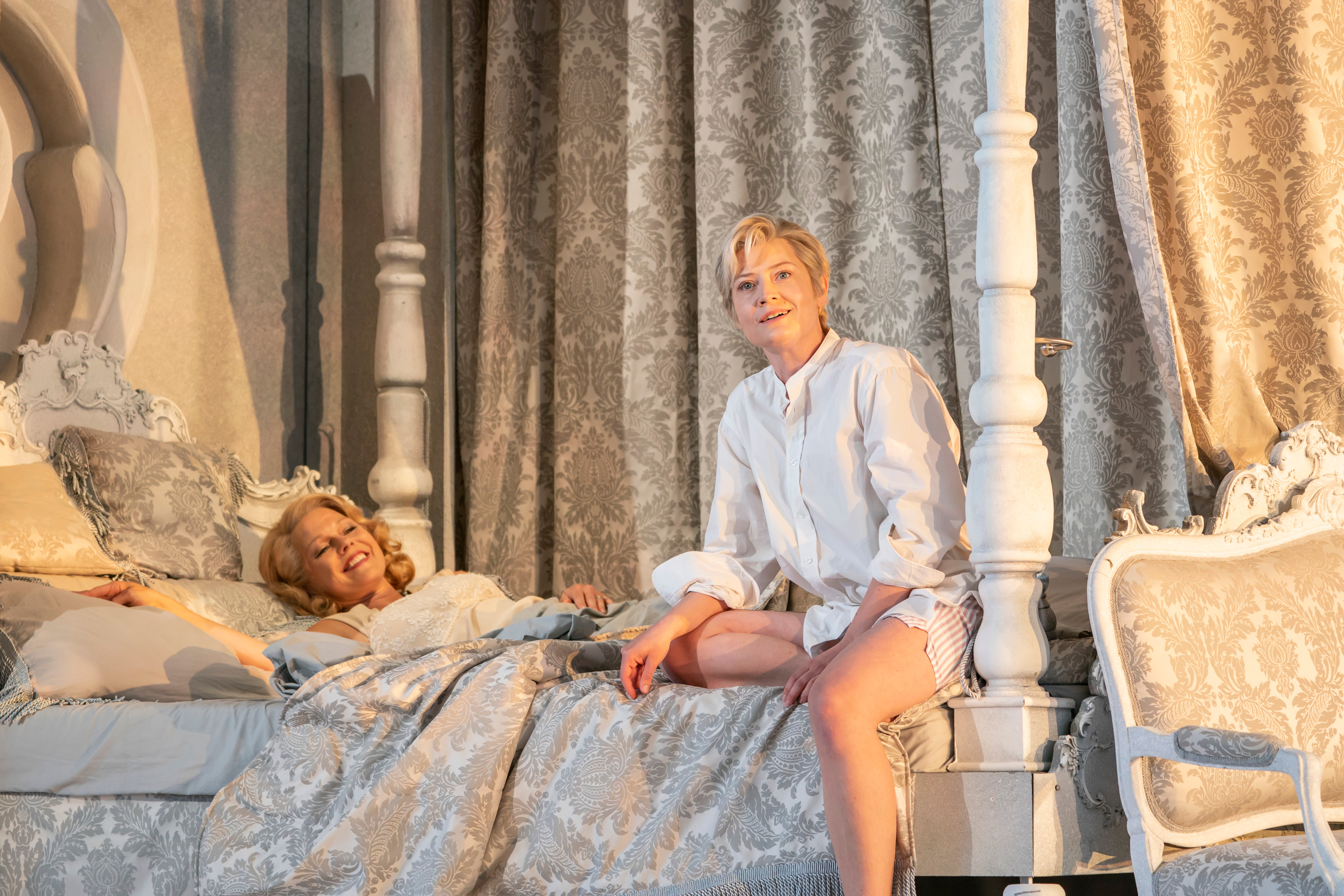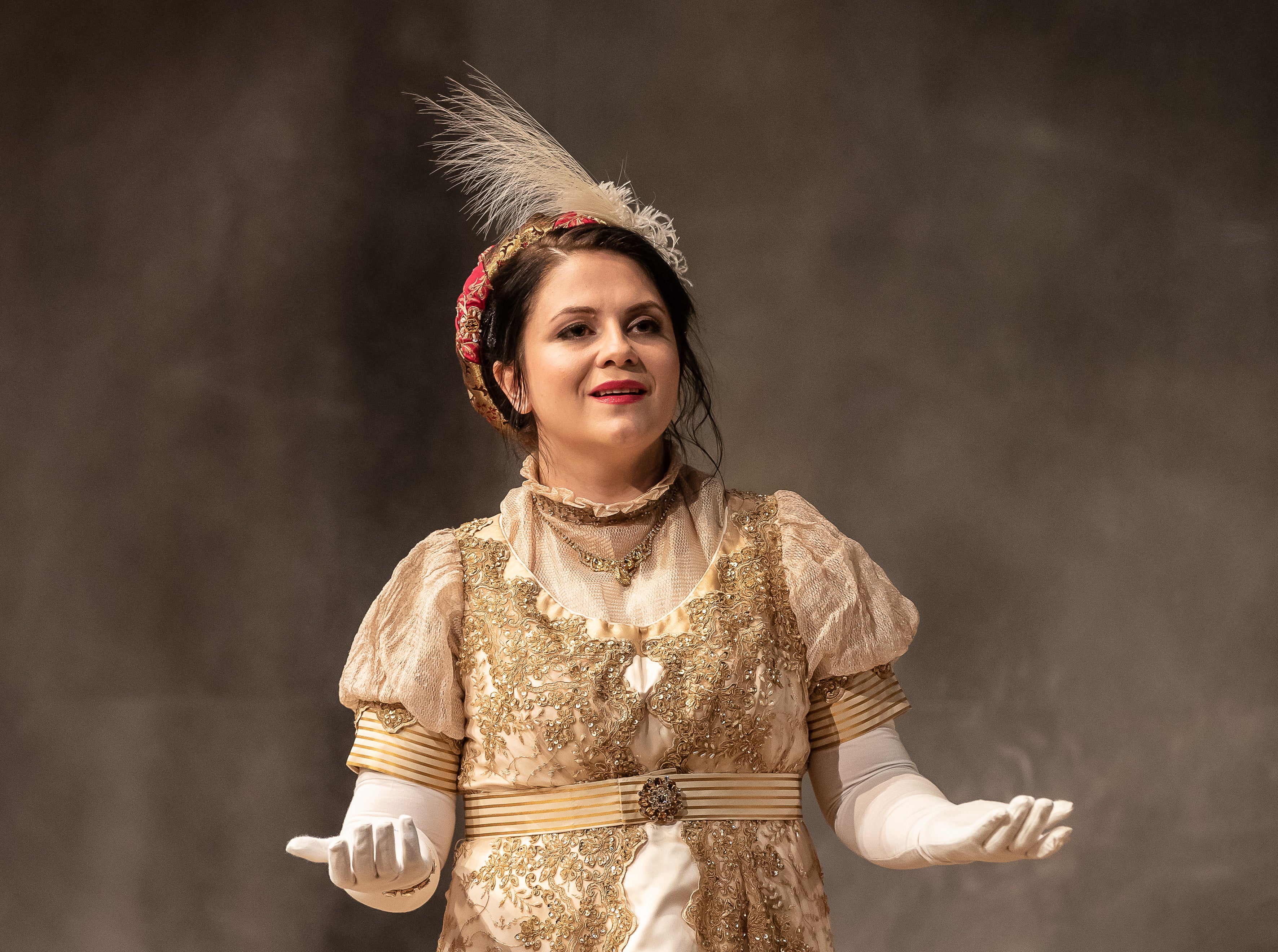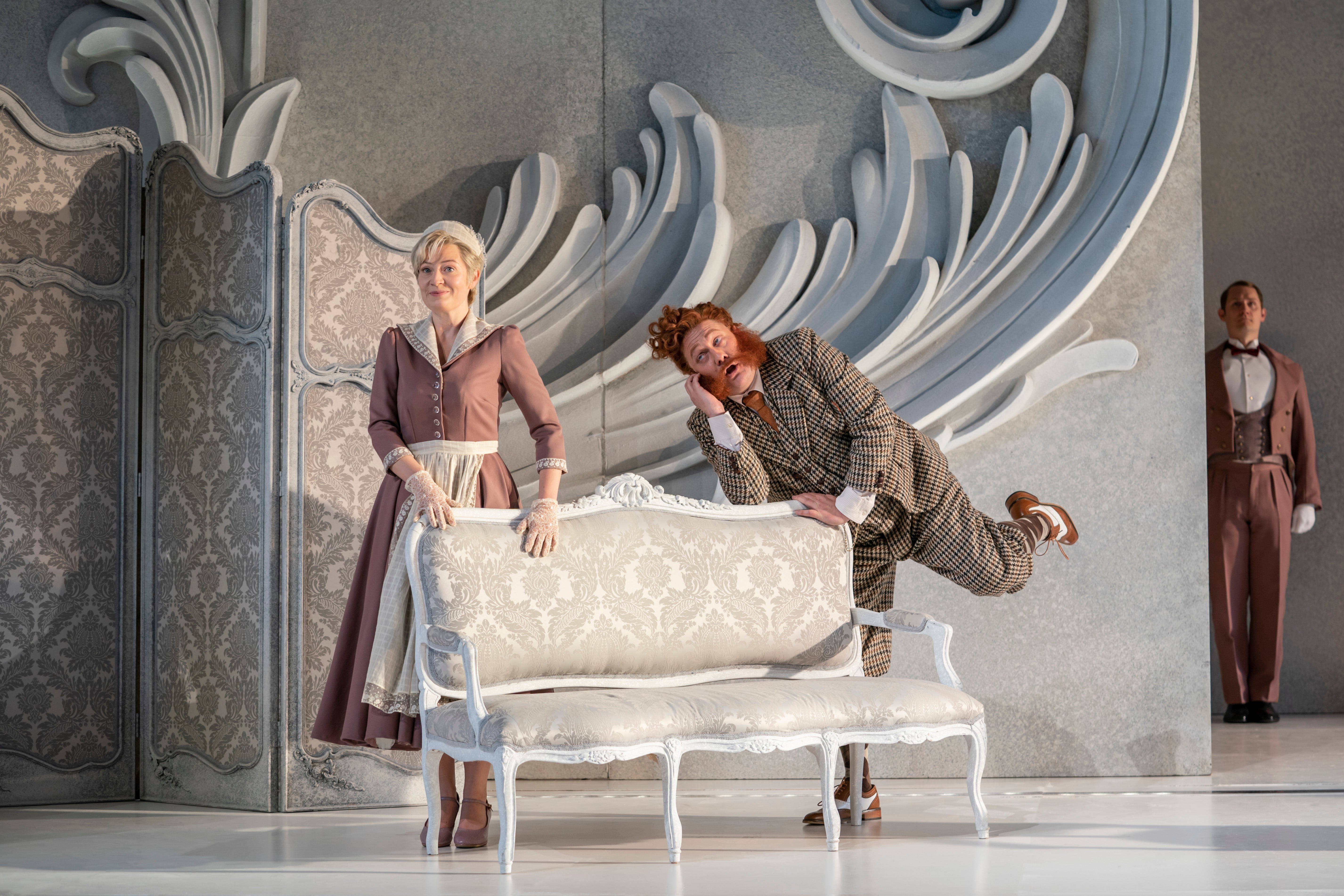Der Rosenkavalier and Eugene Onegin, Garsington Opera review: ‘The next best thing to Glyndebourne’
Garsington Opera has finally reopened with a modern take on Richard Strauss’s ‘Der Rosenkavalier’ and Michael Boyd’s production of Tchaikovsky’s ‘Eugene Onegin’, which has tremendous verve, writes Michael Church

Der Rosenkavalier ★ ★ ★ ★ ★
Eugene Onegin ★ ★ ★ ☆☆
Garsington Opera started life in the grounds of a 17th-century Oxfordshire manor house owned by an opera lover, but the company was sent into exile when his descendants decided they wanted to enjoy their home without sharing it with the public; they were also sick of dealing with complaints about noise from non-opera-loving local residents. A long search led the desperate company to make a new home for themselves on the Getty estate at Wormsley, which was already hosting international cricket.
Initially, the new venue didn’t feel right: it had none of the manor house’s charm or history, and the fact that its auditorium was conceived as a pop-up, to be dismantled at the end of each summer season, lent it an artificial, temporary air.
Ten years on, however, it’s established itself as the next best thing to Glyndebourne in the operatic firmament, being both more accessible and less pretentious than that stronghold in Sussex. It’s now developing its educational and community work, and it’s where the composers, designers, and performers of the future are increasingly to be found.
And it’s good to report that its first show after lockdown is a corker. Richard Strauss’s Der Rosenkavalier may be a perennial favourite, but it’s easy to get wrong: it’s a miraculous marriage of words and music, but there are undeniable longueurs, and its central character, a libidinous buffoon named Baron Ochs, can be – and in many productions really is – a royal pain in the arse. The way Derrick Ballard incarnates him here works a treat – youthful and voraciously randy, with perfect comic timing.
A rich princess known as the Marschallin is in love with the dashing young Count Octavian, who has to evade discovery by dressing as a maid, to whom Ochs takes a fancy; Octavian then falls in love with Sophie, to whom Ochs is engaged. Director Bruno Ravella’s aim has been to tell this preposterous story in a fresh modern way, but without losing either the full-on sentimentality Strauss wanted, or the sense that, at the deepest level, the whole work is an ongoing conversation about lust, love, and old age.
The modernity of Ravella’s production is boldly bodied-forth in the opening scene, where the Marschallin and her teenage lover rise lazily from the bed where they have just spent the night. Thanks to perfect casting the air is dripping with sex: Miah Persson’s Marschallin looks and sounds radiant and regal, while Hanna Hipp’s Octavian is the very image of handsome young masculinity, insecure and bursting with ardour. When this brilliant Polish mezzo comes on in the next scene as a boy masquerading as a housemaid, the effect is comic but no less convincing.
Modernity is also suggested through the bandbox-bright, OTT staging, through Gary McCann’s parody-Baroque designs as in the Marschallin’s levee attended by dressmakers, hairdressers, and assorted flunkeys, and in the nocturnal mayhem when Ochs is driven mad by a host of apparitions from his reprehensible past.
And it’s reinforced by the ironic edge which conductor Jordan de Souza gives the music, when he’s not milking it for ravishingly beautiful effects. It’s amazing how 21st century the atmosphere can be, for example, when Ochs’s predatory rampage is stopped in its tracks by a sudden, shocked orchestral silence.

On the other hand, the transcendent scenes when the work’s philosophical core is laid bare are as dreamily suggestive as anyone could wish. In the first of these – descanted on sweetly by a bird in a tree outside this open-to-the-elements auditorium – the Marschallin ruminates sadly on the mystery and inexorability of time: some nights she stops all the clocks, so fearful is she of losing her allure. The second of these scenes sees the Marschallin gracefully yielding the field to the young lovers with soprano Madison Leonard, as Sophie, adding her voice to those of Persson and Hipp in a trio of heartrending beauty.
Michael Boyd’s production of Tchaikovsky’s Eugene Onegin is not new, and its vices and virtues remain what they were. On the minus side is the complex series of charades inserted after the duel in which Onegin has killed his boyhood friend Lensky: for the latter to rise from the dead and lead a series of dances just muddies the story, despite the director’s good intentions.

And not all the younger singers are up to the challenge of the work. Sam Furness is moving as Lensky but his voice lacks the necessary brightness and beauty; Jonathan McGovern brings a caring sensitivity to the title role, rather than the usual louche charisma, but in the process, something important to the drama is lost. Natalia Tanasii’s Tatyana is gracefully sung, but monochrome compared with Fleur Barron’s spirited Olga.
On the other hand, Kathleen Wilkinson’s old nursemaid Filippyevna is a stunning portrayal, in every bar a creature of the Steppes, while Matthew Rose’s thunderous incarnation of Prince Gremin is a magnificent tour de force. Colin Judson’s solo as Triquet is as sweet as could be desired. Liz Ranken’s choreography may be a Martha Graham re-imagining of traditional Russian peasant dance, but it has tremendous verve, as indeed has the whole evening. The chorus are in fine form.
Join our commenting forum
Join thought-provoking conversations, follow other Independent readers and see their replies
Comments


Bookmark popover
Removed from bookmarks